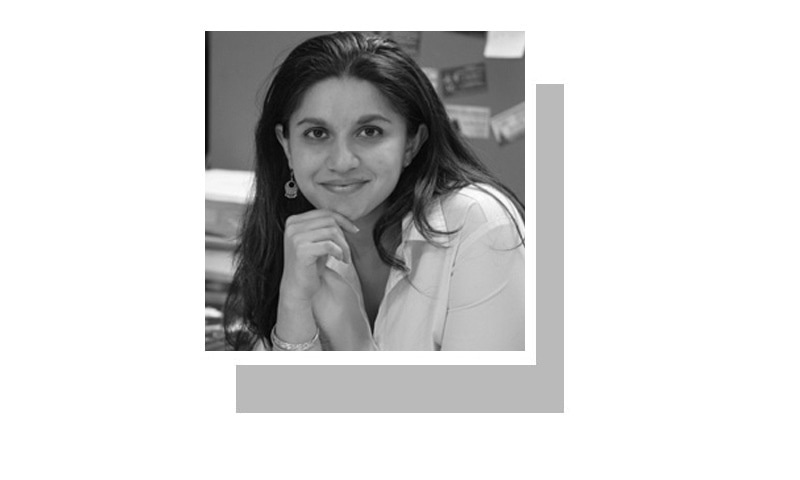The rot within


THE child’s body was found naked in a ditch in Madina Town in Faisalabad at 4:00 in the morning on Nov 1. There it stayed for nearly five more hours, until the police, repeatedly called by the residents who had crowded around the body, finally arrived.
A few months earlier another body of a child had been found lying in an empty plot not much further away. In this particular case, the police arrested a 16-year-old boy and four others, including the administrator of the madressah where both the little boy and his killer had been students. The 16-year-old was charged with molesting and killing the little boy.
This case happened just weeks before the Associated Press released an investigation into the rampant child abuse prevalent in this country’s madressahs. The power of the clerics in the country is such that the poor, whose children are being sexually assaulted and even murdered at the hands of madressah administrators, have absolutely nowhere to go.
In a country where the majority is terrified by mob rule, the poor — and particularly poor children — are utterly helpless.
In a country where the majority is terrified by the mob rule perpetuated by those who claim to have exclusive rights over faith, the poor — and particularly poor children — are absolutely and utterly helpless. The consequences can be seen in the AP story: a madressah principal stuffed a student’s shirt into his mouth before raping him, the gang rape of a sleeping student by a number of older students, another madressah administrator who assaulted a young boy and threatened him with death if he told anyone.
That boy did tell someone; his case, according to the report, is one of three cases that is actually being prosecuted in court. The outcome, as with so many other similar cases involving men who don the mantle of faith, is doubtful. In the few cases in which prosecution even progresses that far, men from Pakistan’s varied panoply of hard-line religious groups show up at hearings to ‘support’ the accused or, more accurately, to intimidate the victims and their families.
In recent days (and years), much of the country has become rather well acquainted with how effective this mode of coercion is, even when witnessed from afar. It is no surprise, then, that it works very well on the poorest and most hapless of parents; those who have not already agreed to ‘forgive’, do so at this point. They have to save whatever little is left of the child’s abused self — or if the child is dead then they have other children to save. Those in the business of silencing and intimidating know that there is always a way to shut people up.
And so they get them to keep quiet. The youngest, abused themselves, are likely to continue the cycle of molestation, ensuring that several if not all who pass through are subject to the worst crime that can be inflicted upon a child.
The rest of society is smugly complicit too. The middle class and the wealthy, whose children are not at the mercy of such institutions, wish to maintain the vow of silence that allows the abuse to continue; it is easier to believe that what one does not see does not exist. Many will tell you that sexual abuse does not exist in Pakistan, let alone in madressahs — those realms that are the bastion of imparting faith in the land of the pure.
But what is happening at the hands of clerics and principals and students, all flashing the cloth of faith, is indicative only of the deep moral rot that has seeped into the farthest reaches of Pakistan. Faith is seen as big business and good politics but it is no longer the basis of moral life.
The faithful are not necessarily moral; many at best engage in a close pantomime of morality, wearing the clothes that look the part, throwing around the words that sound the part and being outraged at everything that fits with their mask of piety. But pretence, after all, is a hollow deal; for all the trouble they take to maintain appearances, they cannot muster any real concern for those most needing it — the innocent children whose bodies and brains are being sacrificed for Pakistan’s collective pretence of piety.
It is not, of course, an isolated phenomenon. In recent years, the Catholic church has had to contend with the rotten core of its clergy. Paedophiles and child abusers seek out professions that provide them with the cloak of piety, the superficial trappings of being holy and hence beyond reproach. As with the case of rapist clerics and murderers, the paedophile priests hid behind the trust that the faithful had in them. It took generations, scores of the brave and the unafraid, to speak out, to prosecute, to not be intimidated by the threat of losing papal support or worse, of facing excommunication and being called Christian no more.
The cost to Muslims, those real Muslims who are interested in more than just the outward trappings of faith, who wish to speak the truth and stand up for the most desperate, the least powerful, will be similar. As others too have pointed out, it is a tragedy of our times that being called insufficiently Muslim, improperly Muslim, inadequately Muslim, is precisely what may be required to actually be Muslim — authentically Muslim beyond the games of appearances and reputations, the visible and the audible.
The truth is no longer what is visible, the good and the right are no longer the same, and it is the broken and beaten bodies of the children that are proof of the rot that lies within.
The writer is an attorney teaching constitutional law and political philosophy.
rafia.zakaria@gmail.com
Published in Dawn, November 29th, 2017